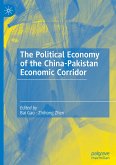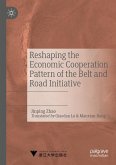This study examines the driving forces behind the rise of new logistics networks linking China and Eurasia, especially the China-Europe freight trains. As major transportation infrastructure, these logistics networks have profoundly changed the political-economic landscapes of the world island.
By investigating Chongqing, Chengdu, Wuhan, Zhengzhou and Yiwu, the five logistics center cities where the China-Europe Freight Trains start, this study demonstrates the roles played by the China Railway Corporation, local governments, state-owned enterprises and private companies in the operations. These case studies highlight the importance of innovations in bringing down the costs, and how these freight trains have sustained the trade between China and European countries. This book will be of great value to scholars of logistics, China s belt and road initiative, and globalization.
By investigating Chongqing, Chengdu, Wuhan, Zhengzhou and Yiwu, the five logistics center cities where the China-Europe Freight Trains start, this study demonstrates the roles played by the China Railway Corporation, local governments, state-owned enterprises and private companies in the operations. These case studies highlight the importance of innovations in bringing down the costs, and how these freight trains have sustained the trade between China and European countries. This book will be of great value to scholars of logistics, China s belt and road initiative, and globalization.








